Private sector plays key role in Indonesia's pursuit of sustainable agriculture, food security
With increased attention and awareness in recent years among consumers wanting to know where their produce is coming from, private firms are empowering farmers through sustainable solutions and helping to ensure food security.
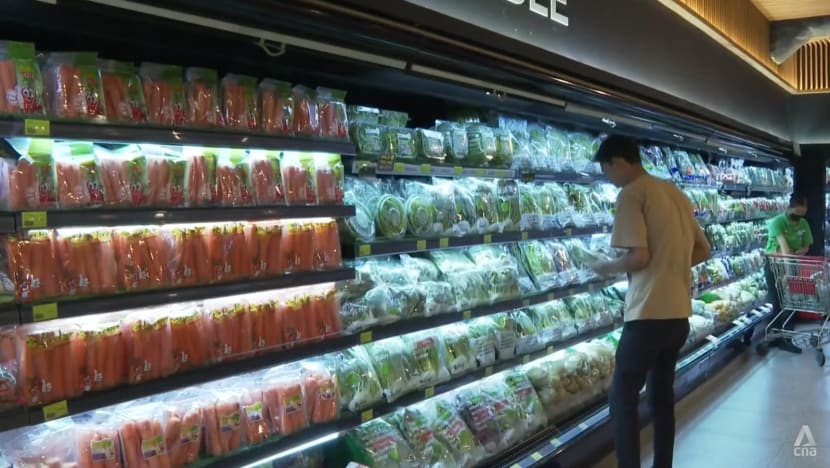
Indonesia is working closely with its private sector to ensure a well-functioning agricultural sector for the country, in the face of food security threats.
JAKARTA: Indonesia is working closely with its private sector to ensure a well-functioning agricultural sector for the country.
Such an emphasis on food security comes after Russia’s invasion of Ukraine last year caused a disruption to the global food supply chain.
Indonesian farmers are also being encouraged to use sustainable solutions to boost their farm production.
BOOSTING HORTICULTURE SECTOR
Ms Efrina Ginting, a small-scale Indonesian farmer, has been farming hydroponically for the last eight years.
With help from agritech firm Beleaf Farms as a partner farmer, she has scaled up to nearly 1,000 sq m of space, spread over three greenhouses in two locations in West Java.
"I planted a little bok choy and when I wanted to harvest it, I offered it to them (Beleaf) and they took it. That’s how my relationship with them began,” she told CNA.
“After that, they made me an offer to plant what they needed and according to what they requested. But the entire farm would just produce one item – which was bok choy. That’s how my partnership with them started.”
Beleaf Farms started out as a hydroponic farm in 2019, before moving on to other aspects of the horticulture sector.
Its founder Amrit Lakhiani told CNA a lot of Indonesian farmers are actually underperforming in terms of yield and quality, especially when compared to other Southeast Asian countries.
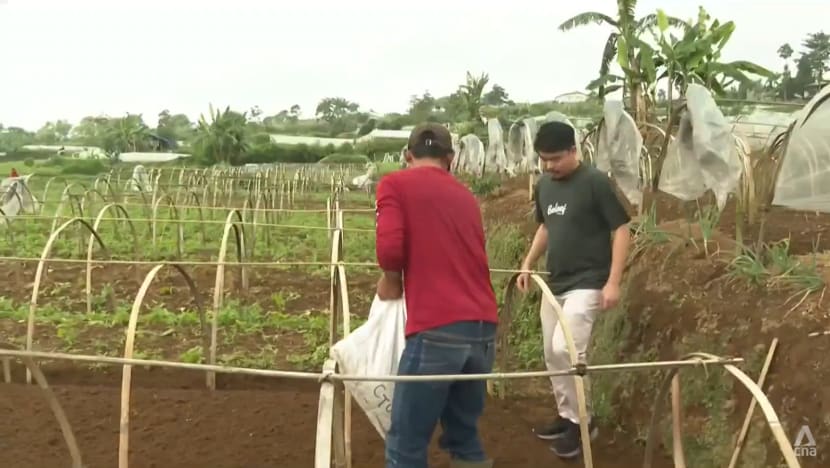
Instead of continuing to build their own farms, the team decided to help existing farms by developing and implementing a new programme – Farming as a Service.
“What we do is we help farms with their input, their crop management, and crop rotation. Our agronomists and supervisors work with them to improve their yield and quality. And upon harvest, we offtake all of their produce,” he said.
Farmer Rahmat Hidayat, who grows 30kg of spinach per day for the company, was concerned about reaching a fair agreement for his produce.
He did not consider working with Beleaf Farms right away, as he wanted to first see if they kept their word on the contract.
“I tried working with them bit by bit, and then it went on for almost a month and now the relationship has carried on. Now our income (and) expenses are clearly visible,” he told CNA.
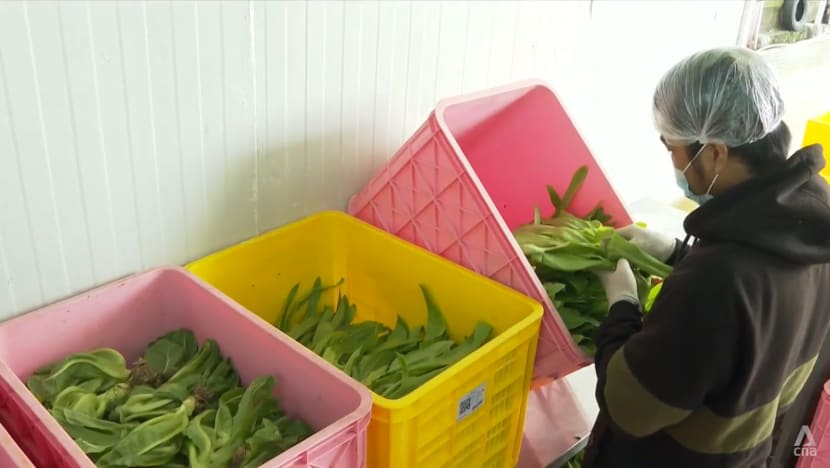
The produce the firm purchases from farmers is processed at its facilities in West Java, after which it is sold to clients within the country, as well as exported to Singapore, Pakistan and Bangladesh.
The company has multiple greenhouses and several research farms.
RESEARCH A CRUCIAL FACTOR
Research and development (R&D) is crucial in determining agriculture productivity and affects food prices.
Muhammad Ifdhol Syawkoni, the hydroponic R&D manager at Beleaf Farms, told CNA that even details such as how many holes there are in each hydroponic system, have to be carefully researched.
"It can't be, ‘Oh, there are a lot of holes on this, let’s use all’, because the standard is that this is the medium where the roots grow. If the medium is too small, it will be washed away by water in the production area. If it's too big, we'll incur too much cost,” he explained.
Beleaf Farms has secured nearly 40 partner farmers so far, but getting them on board in the first place is not always easy.
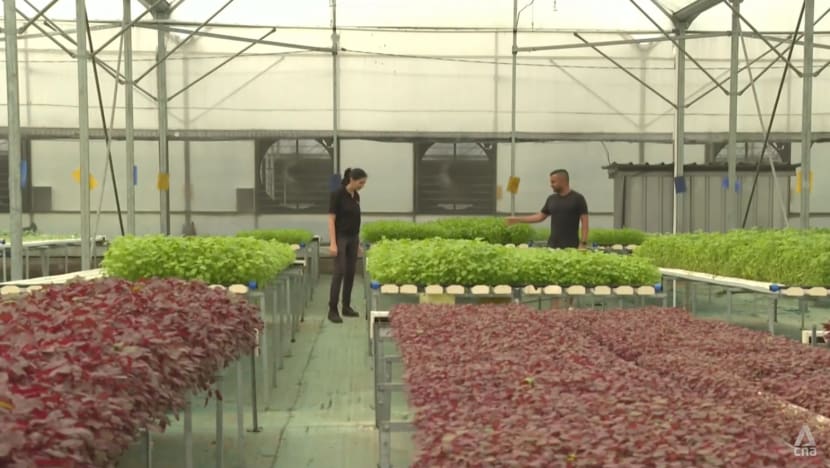
Mr Benny Januar Tannawi, head of Farming as a Service at Beleaf Farms, told CNA that the process is like searching for a soul mate.
“There are farmers who are very difficult to recruit because maybe they know the market, they consistently keep wanting prices according to the market, even though what distinguishes us from the others is that when we have partnered with someone, we will definitely take all their produce. Even if we don't have an offtaker,” he said.
WORKING WITH BIGGER FIRMS
Generally, smallholder farmers get the least benefits in the food chain system, but partnerships with private enterprises could change things for the better.
Indonesian President Joko Widodo had previously called on companies to work with micro, small and medium-sized enterprises, including farmers, to boost their competitiveness.
Mr Arsjad Rasjid, chairman of the Indonesian Chamber Of Commerce and Industry, said that the role of a company is to transfer knowledge and technology to the farmers and expand their access to financing.
It should also assist the farmers in distributing their agricultural products, and open access to the wider national and export markets.
While agronomists at Beleaf’s farms are working hard to increase yields, the firm is also constantly innovating and finding new ways to ensure its crops are protected against various environmental changes. If successful, the innovations can be implemented and guard against real-life scenarios.
The company also needs to ensure the produce is efficiently transported to customers.
The produce is distributed and sold through five channels: export, hotels, restaurants and cafes, online vendors, local markets and supermarkets.
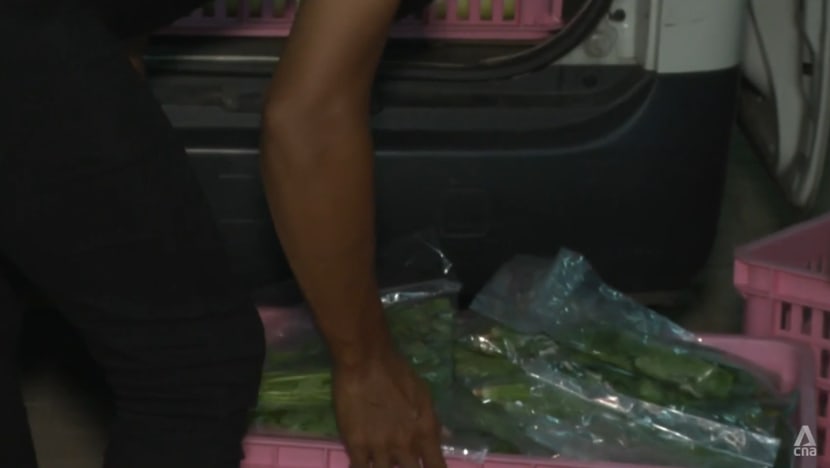
For those at Beleaf, the challenge is not sustainability per se, but the higher costs involved instead.
The firm’s chief commercial officer Lim Kiat Boon told CNA: “The different farming methods like hydroponic (and) organic, means there’s more cost incurred when we are producing the item. So then naturally, it will be reflected on the price that we bring to the market.
“So I think there’s a lot of emphasis in the company to try to see if we can improve that.”
With increased attention and awareness in recent years among consumers wanting to know where their produce is coming from, firms like Beleaf Farms play a huge part in empowering farmers through sustainable solutions and helping to ensure food security.
Read this story in Bahasa Indonesia here.
















